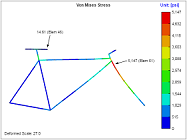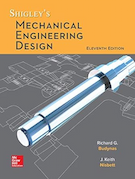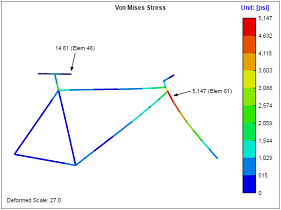Skills Required of a Mechanical Engineer
Despite the wide array of work that mechanical engineers perform, there are several fundamental skills that are common requirements for all mechanical engineers.
Knowledge of First Principles
Knowledge of the underlying theory and first principles is critical to success as a mechanical engineer. In order for a mechanical engineer to solve real-world problems in their field, they first must have a firm grasp on the fundamental base of knowledge applicable to that field. For example, a structural analyst will need to have deep knowledge of statics and strength of materials, whereas an engineer with a focus on machine design will need to be comfortable with machine design principles, manufacturing processes, and Geometric Dimensioning & Tolerancing (GD&T).

Practical Knowledge
Practical knowledge for a mechanical engineer is the knowledge of how to apply first principles to solve real-world problems. The ability to apply knowledge is equally as important as the knowledge itself, and is something that will be developed and refined after years of working in a specific field.
For instance, a structural analyst learns to consider the effects of loading conditions, material properties, environmental conditions, and geometry when analyzing a component. They understand how all of these factors play into the overall structural integrity of the part. An engineer focused on machine design will learn how to consider manufacturability, reliability, maintainability, size, weight, and power requirements when designing a system. They will learn to balance all of these factors to create an optimal design.
Knowledge of Software Packages
There are a number of software packages that are important to know as a mechanical engineer. The level of proficiency that is required with specific software packages is dependent on your role as an engineer. For example, a structural analyst will need to be proficient in FEA software. Someone with more of a design focus will need to be proficient with a 3D CAD software package. A full discussion of important software for mechanical engineers is provided in this post, but the most notable ones include:
- Mathcad -- This is useful for just about every mechanical engineer. It allows you perform calculations and to format them in a way that is presentable.
- Excel -- This is also useful for just about every mechanical engineer. It is useful for quick calculations, for tabulating data, for laying out ideas, for basic programming -- the possibilities are endless.
- CAD (Computer Aided Design) -- A 3D CAD package will be especially useful to any engineer with a focus on design. This software will allow you to build 3D models of parts and create drawings. Popular examples include SolidWorks, Unigraphics NX, CATIA, and Autodesk Inventor.
- FEA (Finite Element Analysis) -- FEA is useful to any engineer that needs to perform structural analysis. This software will allow you to analyze stresses and deflections in complex structures. Popular examples include ANSYS and Nastran.
- MATLAB -- This is an amazing analysis tool, and is the programming environment of choice for mechanical engineers. MATLAB is essential for doing more complex numerical analysis where simple math doesn't cut it and a programming solution is required.
We have a number of structural calculators to choose from. Here are just a few:
Problem Solving
One of the primary responsibilities of a mechanical engineer is to solve problems. A project to develop a mechanical system is itself is one giant problem composed of many smaller problems. The large problem is figuring out how to develop a system that performs its required functions in its intended operating environment, all within schedule and under cost. The smaller problems come up throughout the development of the system. For example:
- Concept development -- What is the most feasible system design that will meet the requirements?
- Detail design -- How to design the component to perform the intended function, while conforming to interfaces with other components, while keeping it within a weight limit, while ensuring that it can be manufactured within a reasonable cost?
- Analysis -- How to determine all relevant load cases for the component, and then ensure that the component is structurally adequate to survive the loads?
- Test -- How to test the component to demonstrate that it is capable of supporting the required loads and that it can perform its intended functions? If the component fails testing, how best to proceed?
- Production -- How to find the best vendors and machine shops to produce the components on time and within budget, and with acceptable quality?
Creativity
Creativity is important for all mechanical engineers, but especially to those with a focus on machine design. Engineers will frequently need to dream up new designs for a mechanical system, or come up with innovative ways to apply old ideas and concepts to new problems.
Communication
Communication skills are also critical to the success of a mechanical engineer. An engineer must communicate with customers, management, and other engineers. It is essential to be able to communicate your ideas in a clear, logical, and professional manner. Engineers also need to be comfortable giving presentations in front of audiences. Design reviews are a common occurrence, and it is typically the engineer responsible for the design who gives the presentation.
Writing
This plays into communication skills, but writing skills are important. Engineers are constantly writing -- analysis reports, test procedures, manuals, presentations, emails -- the list goes on. Although many engineers may not relish the idea of writing, it is an inescapable fact of life as an engineer and should be embraced.
Teamwork
Yes, it sounds a bit hokey, but engineers need to be able to play well with others. Most engineers work as part of a team, so the ability to collaborate with other engineers and with other members of the organization will play a huge role in their success in that organization. If you are an aspiring engineer and are still in school, you should give some serious though to joining a project team such as Formula SAE or Baja. It will be a great resume booster, and it will also give you a chance to work on a large project with other people.

Time Management
Schedules and deadlines are a fact of life as a mechanical engineer. You will need to be able to produce quality work within the required timeline. The better you are able to manage your tasking to keep yourself on track, the more successful you will be.
Intellectual Curiosity
Possibly the most important factor for success as a mechanical engineer is an unquenchable thirst for knowledge and understanding. The most successful engineers are constantly pushing to learn more and to improve their skills. Leaning doesn't stop once you graduate from college. A field as large as mechanical engineering is impossible to fully grasp after only four short years in the classroom. The best engineers realize this and push to improve every day.



